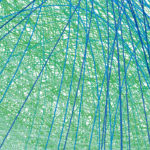
The structures of many proteins have been extensively studied, however it has proved extremely difficult to investigate the structures of the mRNA molecules that carry the genetic information for these proteins.
MRC Laboratory of Molecular Biology
One of the world's leading research institutes, our scientists are working to advance understanding of biological processes at the molecular level - providing the knowledge needed to solve key problems in human health.